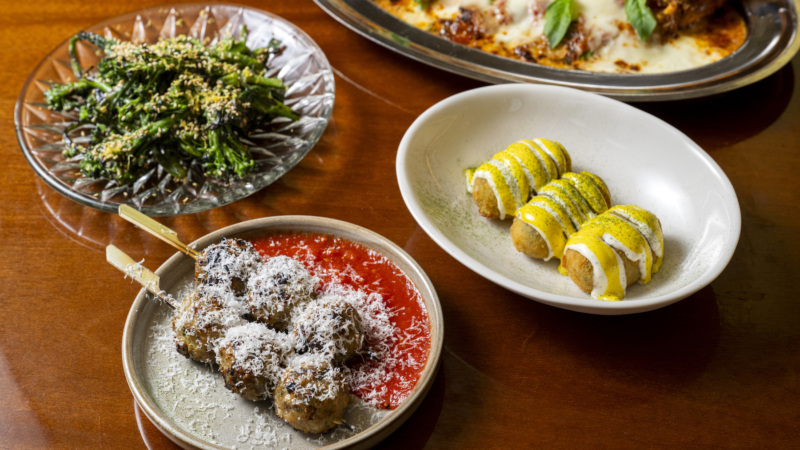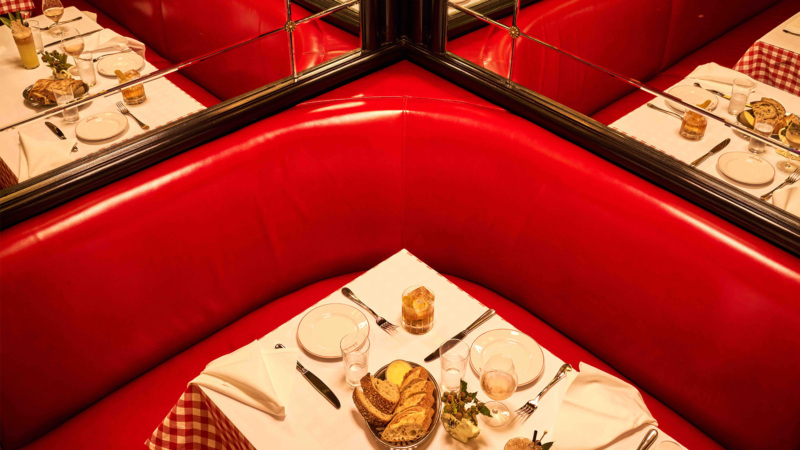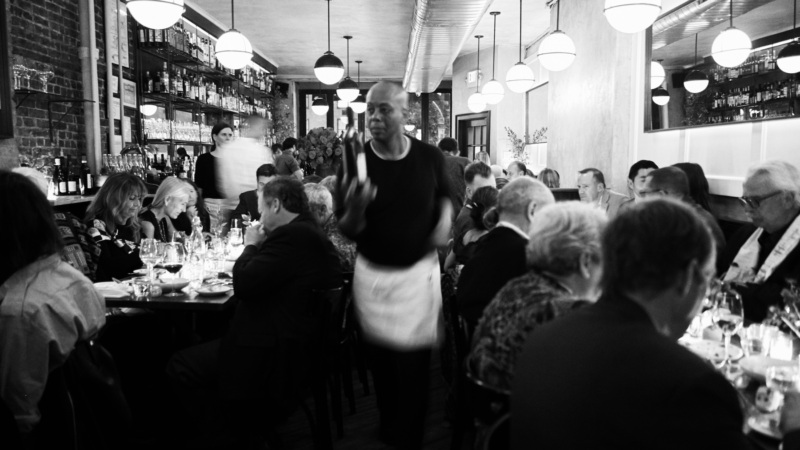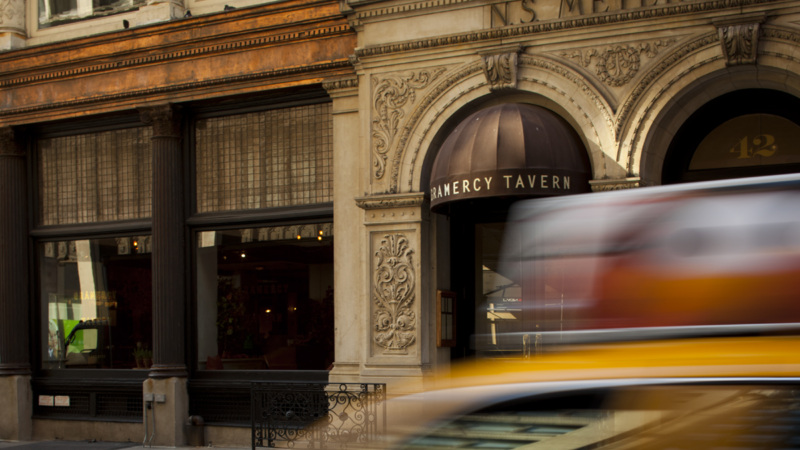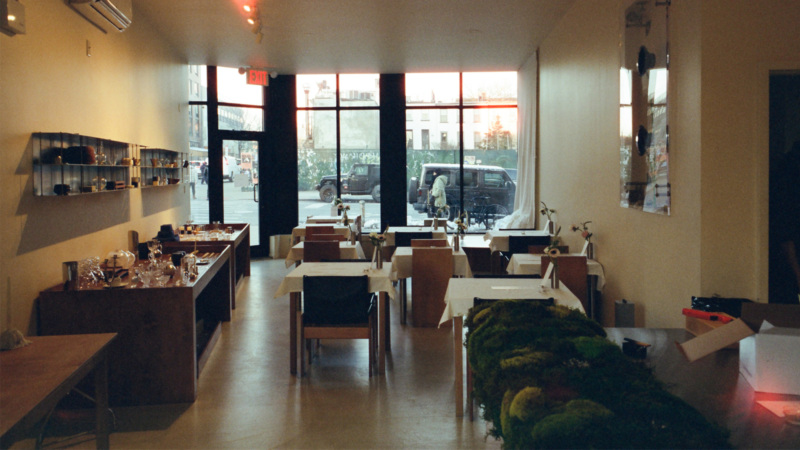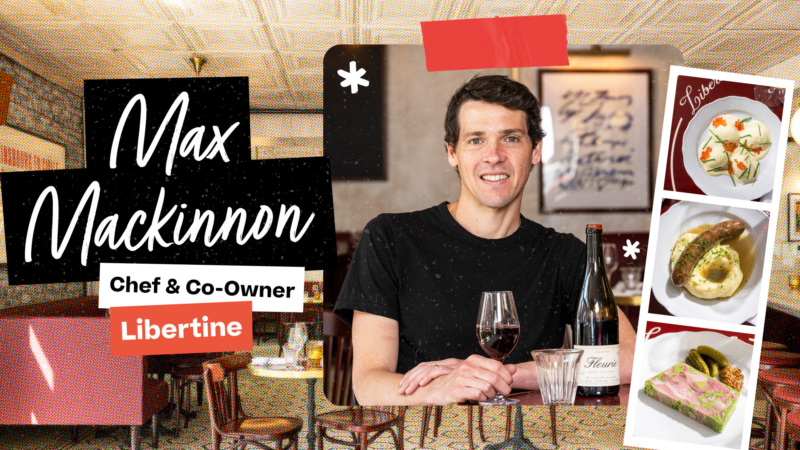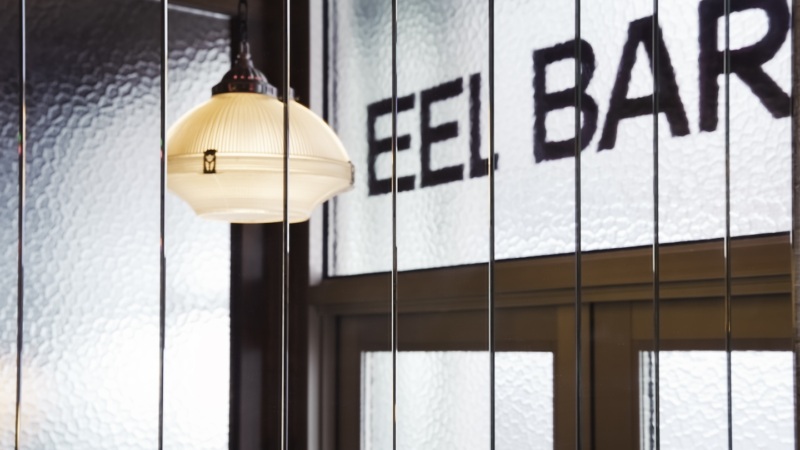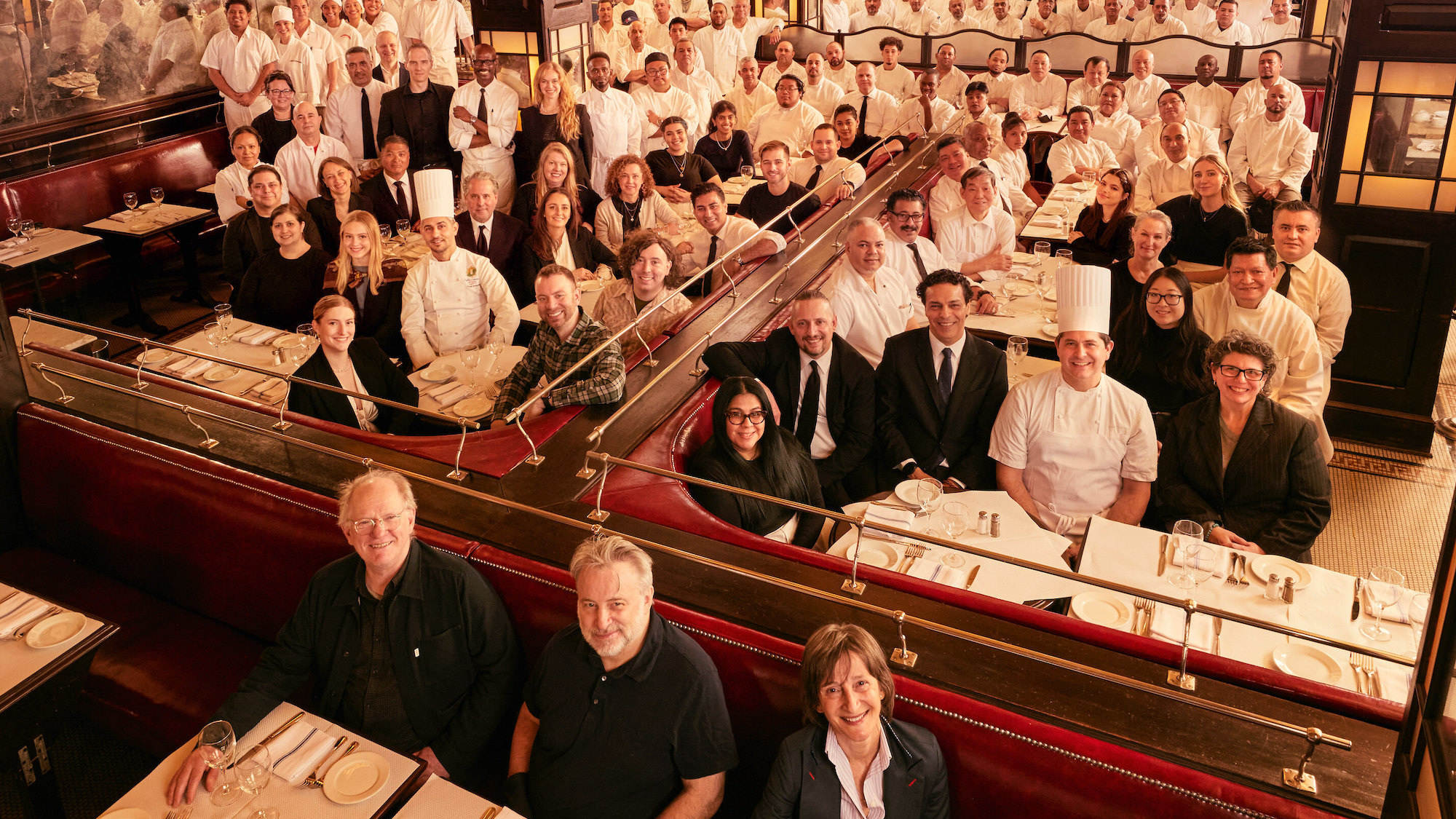
Balthazar Is Turning 25. Keith McNally Has … Thoughts.
Balthazar reaches the quarter-century mark this week, and having created one of New York’s most iconic restaurants, Keith McNally has grown quiet and introspe …
Nope, sorry. Wrong story. Balthazar is turning 25, and McNally, having created some of the city’s most popular and enduring restaurants — not just Balthazar, but the Odeon (with Lynn Wagenknecht), and Pastis (with restaurateur Stephen Starr) — is as pointed and as outspoken as ever, perhaps more than ever.
If that seems like an unusual stance for someone at the helm of of a hospitality empire, you haven’t been paying attention to McNally. Balthazar’s hospitality is a big part of its legend, but the mechanics of that hospitality succeed, in fact, because they turn the usual restaurant hierarchy on its head. Extra respect goes to those who do what can seem like the most basic work.
It might be a stretch to say the McNally school of customer relations works exactly the same way — Balthazar’s tiers of status are well-known at this point, and manifest are the New York movers who crave AAA status — but at the same time, there is a great deflationary quality to the way Balthazar works. Yes, it helps to be a regular. And being notable in some way probably doesn’t hurt — so long as you don’t make a thing of it. “Do you know who I am?” is, on balance, the worst imaginable flex at the Balthazar host stand.
And then, Instagram. Since joining the platform a couple years ago, McNally has become pointedly vocal and blunt — posting tidbits that range from wistful to acerbic to mildly naughty. Often they are impolitic — and have been crusading, too, as when he recently leveraged his restaurants to raise more than $300,000 for Ukraine. (Then there was the sharing — oversharing? — of his post-vasectomy photos, which is not a phrase you’d expect to write in restaurant coverage.) That the British-born restaurateur has courted controversy is very much an intended effect.
As his most famous restaurant reaches a quarter-century mark, Resy spoke with McNally about endurance, the elements of success, and, yes, becoming an improbable social-media idol.
This inteview has been lightly edited for length and clarity.
Resy: Twenty-five years puts Balthazar into a small, elite cadre of New York restaurants. When you were conceiving it, what did you have in your head as its lifespan?
Keith McNally: 25 years ago, I was desperate just to open Balthazar. Anything else was a bonus.
Of course, this has been a particularly crazy quarter-century to endure in New York — not just 9/11 but the city’s pivot to much more bourgeois growth. And then COVID. I know you’ve written about how hard it was to have Balthazar closed so long. Was there ever a moment during the pandemic when you thought, “That’s it, we’re not going to get the doors back open”?
Six other restaurants of mine had shut their doors due to the pandemic, but none affected me as much as Balthazar’s closing. The idea of a large, bustling restaurant like Balthazar struggling for life was like watching an elephant dying.
In 2016 I suffered a stroke that left me half the man I used to be. I remember being inside Balthazar’s padlocked dining room during the pandemic and thinking that Balthazar was now half the restaurant it used to be.
Watching Balthazar reopen was like watching Lazarus rise from the dead. I think for many New Yorkers it symbolized the re-emergence of the city. The night we reopened in March 2021 was like V-E Day. Customers were dancing in the aisles and strangers kissed. And all the customers left the servers 50% tips or more.
OK, let’s dial back to 1997. Set the scene for us in Soho. This wasn’t exactly the downtown of Basquiat, and I remember by the mid-’90s West Broadway was already transforming pretty rapidly. Did it feel like a neighborhood ready to blossom?
In 1997 I rented the Balthazar space because of the space itself, not because of the neighborhood.
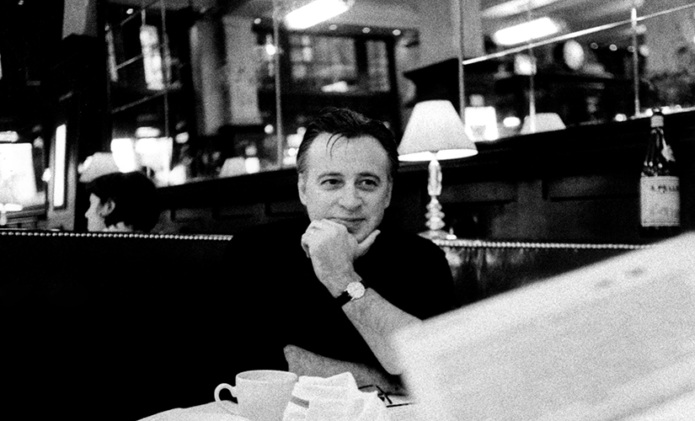
What about 80 Spring? I know you have an eye for spaces. But how did this massive building, once a bank and then a tannery, strike you as the right fit?
I rented 80 Spring because I felt I could do something with the space. Renting the space had nothing to do with the building or the neighborhood. Purely the space. Let’s talk a bit about inspirations. I know you spent a lot of time studying classic Paris bistros. What elements did you want to pull from those?
I never “studied” Parisian bistros. I lived in Paris from 1990 to 1992, and of course revelled in the experience. Not just the cafes and bistros, but also the markets, museums and French cinema. The whole shebang. I’m not conscious of taking any one element but my most vivid experience in Paris was sitting alone in a small cafe sipping an espresso and reading the Herald Tribune. That’s where Balthazar was born.
One thing with those Paris spots: They aren’t — or weren’t prior to the era of the néobistro — driven by chefs. And that’s another longtime Keith McNally theme: Your chefs are talented, but usually they’re not going to, say, Balthazar, to become celebrities. Is that part of the formula? Are you cautious when a chef walks in with a degree of ego?
The people in life I tend to admire are those uncomfortable with fame. This is especially true with chefs. The chefs I respect and hire are those most uneasy with the celebrity aspect of the restaurant business.
Not to dwell, but it’s fascinating: A generation ago, French bistros were a staple of New York dining. Today so many are gone. If anything, that makes it more impressive that Balthazar and Pastis, and even Odeon, are upholding the tradition. When you think about Balthazar, or any of these, was there something specific in New Yorkers’ DNA that they tapped into? Or was it just right neighborhood, right time?
Neither. I’ve only ever built restaurants that I want to go to.
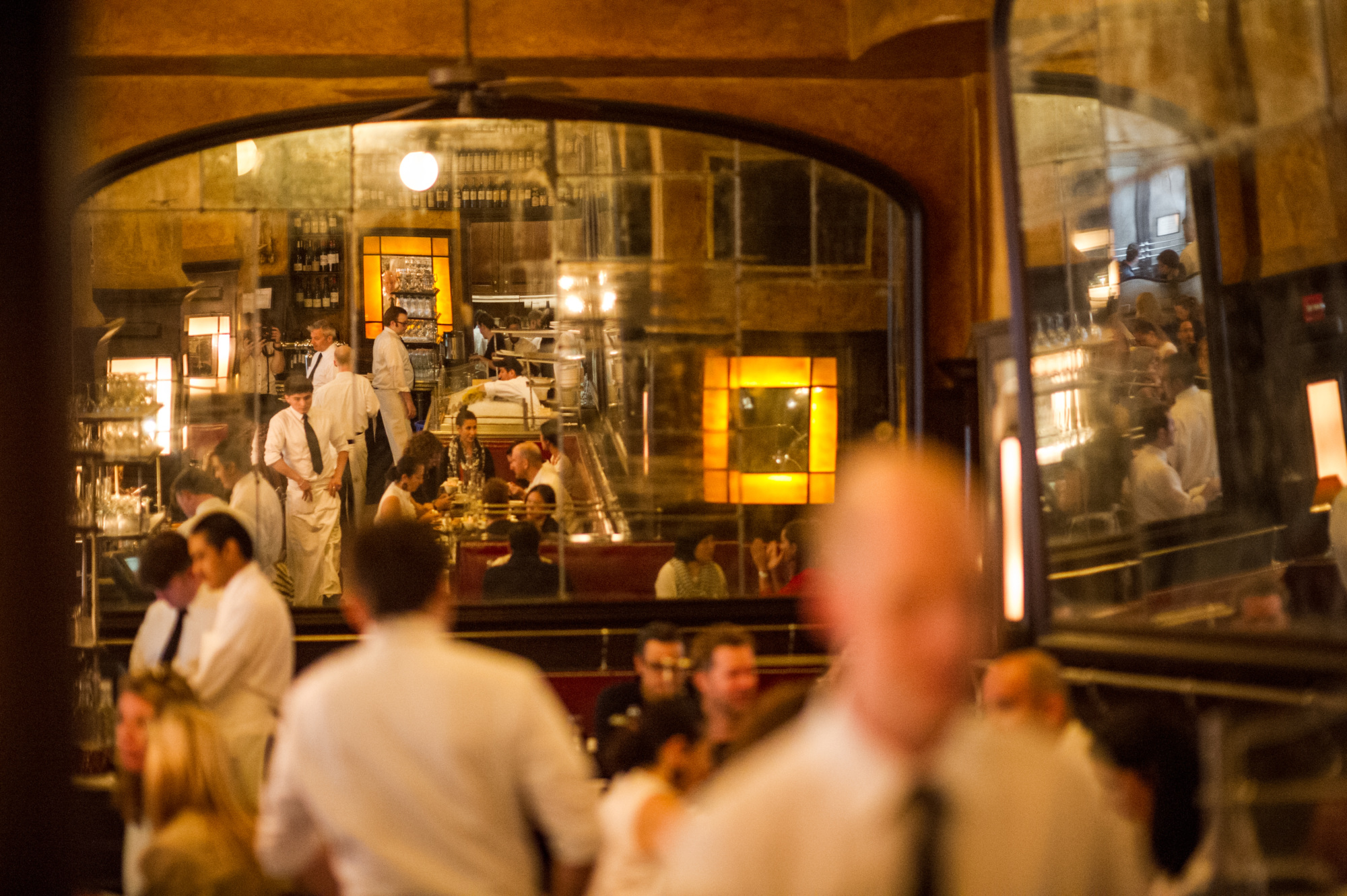
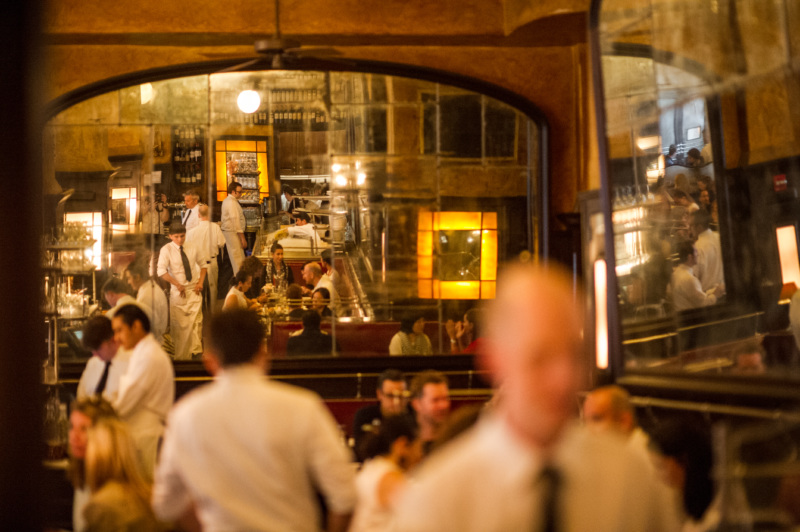
It’s no secret that part of Balthazar’s success was the right cross-section of people — those who came to be seen, and those who came to see them. Not just celebrities, but also media players. I know your system has been built over time, but how would you define the various tiers of status at Balthazar? How does hospitality roll out in the McNally world?
Customer service at Balthazar begins with the staff I hire. I only hire servers who are natural and not one iota pretentious. On day one of training my servers are taught to respect the coworkers below them more than those above them. This means that Balthazar’s dishwashers are given more respect than me. I actively encourage this.
As a result, my floor staff end up being more sensitive to the needs of the least confident customer in the dining room than they are to some Hollywood bigwig. That’s why we offer a free glass of champagne to single diners, but never to Al Pacino.
I’d also note your staff tends to stay around. That includes a lot of your cooks and servers, and people like maître d’ Zouheir Louhaichy, who’s essentially been there in one way or other since the beginning. This is, to put it mildly, rare. How would you explain that stability?
I try to fire as many of my staff as often as possible. Obviously I’m doing a poor job. I’ll look into it and get back to you.
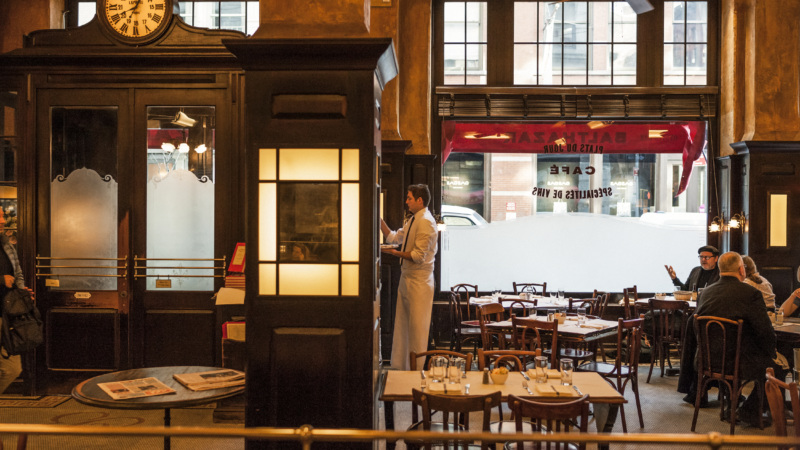
The Magic of Balthazar Has Always Been In the Details
Balthazar opened in the spring of 1997 and, in fact, there exists in my mind no recollection of a New…
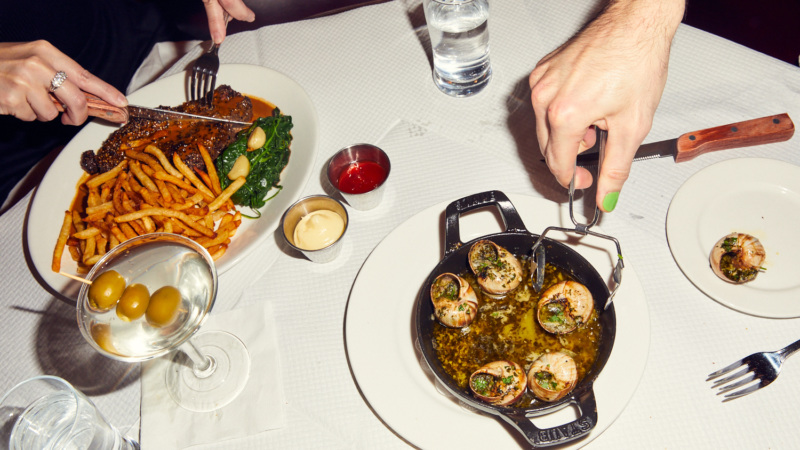
The One Who Keeps the Book New York
How to Get Into Balthazar — And Why It’s Still Packed 25 Years Later
Not many restaurants make it to 25 years, and even fewer are as perpetually packed as Balthazar has been from…
We should probably talk about your Instagram. I thought the Times’ description not long ago, “a Howard Beale for the Instagram era,” was apt — even if most people on Instagram have no idea who Howard Beale was. I guess the question is: Why so much discontent? And why there, on a platform for pretty pictures?
I had a falling-out for a while with Resy’s founder, Ben Leventhal, over my posts on Instagram, because my posts are not all about food or people’s dogs. But I joined Instagram two years ago to counter posts about food and dogs! Also posts from people desperate to prove how great their lives were. I found the majority of posts – I still do – to be characterless, cowardly and self-regarding. As are many of mine.
Conversely, when posts reveal the truth about human nature, they can be fantastic. Many of my posts are quite bland. They’re often books, paintings or, embarrassingly, about decor. Only one in ten could be called controversial. But I’m no more outspoken than I ever was. It’s just that Instagram allows me to make an idiot of myself to many more people than before.
Speaking of discontent, you’ve had what could be called a colorful relationship with restaurant critics on both sides of the ocean. Today the critic’s role seems to be in transition — away from being the all-powerful star-wrangler, towards more insight, more cultural context. With things shifting, how would you define the critic’s role going forward? Do reviews still matter?
Restaurant reviews still matter. I regret my public argument with former Times critic Frank Bruni. I was completely in the wrong.
Having recently lived in England I suddenly realize how basically fair and honest American restaurant critics are. Sunday Times food critic Marina O’Loughlin has an investment in a restaurant. If Pete Wells did the same thing here, he’d be tarred and feathered.
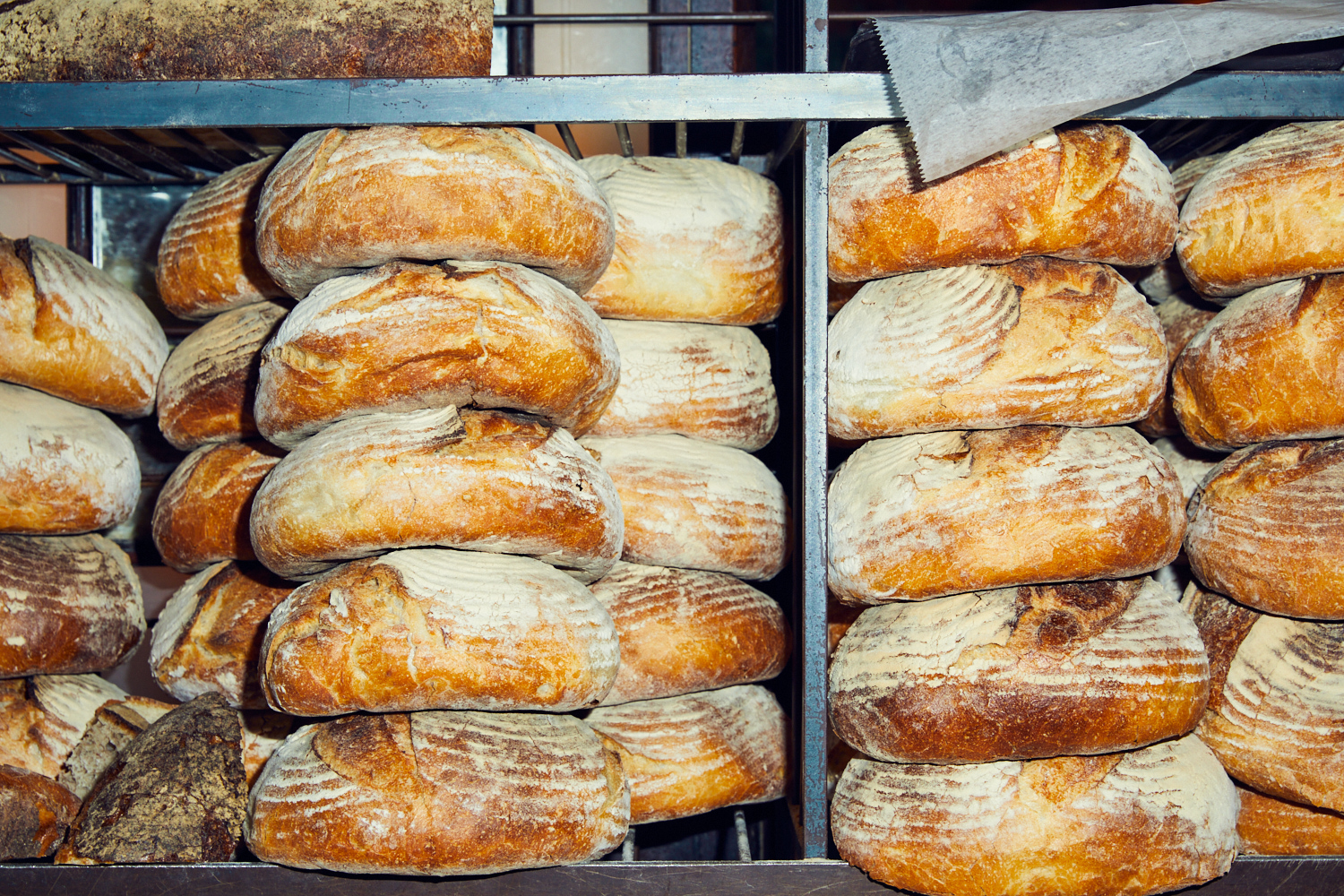
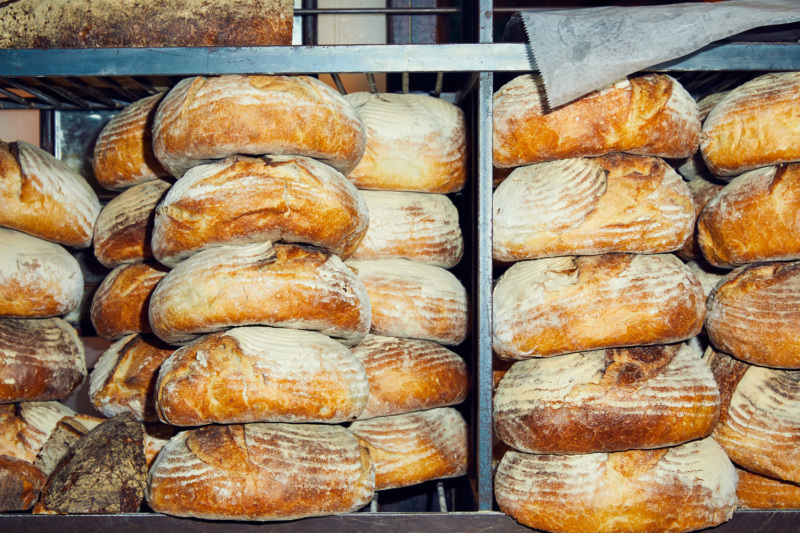
Let’s talk for a moment about the bakery, and breakfast, which I know is many peoples’ favorite time of day at Balthazar. When did it become clear that it wasn’t going to merely be a destination, but also an ecosystem? That it wasn’t just steak frites, but also power coffee-and-croissants?
Balthazar didn’t open for breakfast for the first year. I always wanted to, but my chefs at the time, Riad [Nasr] and Lee [Hanson], didn’t want to. After sucking up to them rotten for 52 weeks, they relented.
Thinking that only two people would show up, I announced to the press that anyone eating breakfast at Balthazar on the first day would eat for free. We opened at 8 a.m. At 5:30 a.m. a line began to form outside. The dining room was full five minutes after we opened. Not only did my customers stuff their stomachs with croissants and waffles, they also stuffed their pockets.
Finally, is there one element of Balthazar that has unwaveringly felt right to you since the start? Is there one thing you would have done differently?
I would have joined Instagram 10 years earlier.
Jon Bonné is Resy’s managing editor. Follow him on Instagram and Twitter. Follow Resy, too.
Discover More
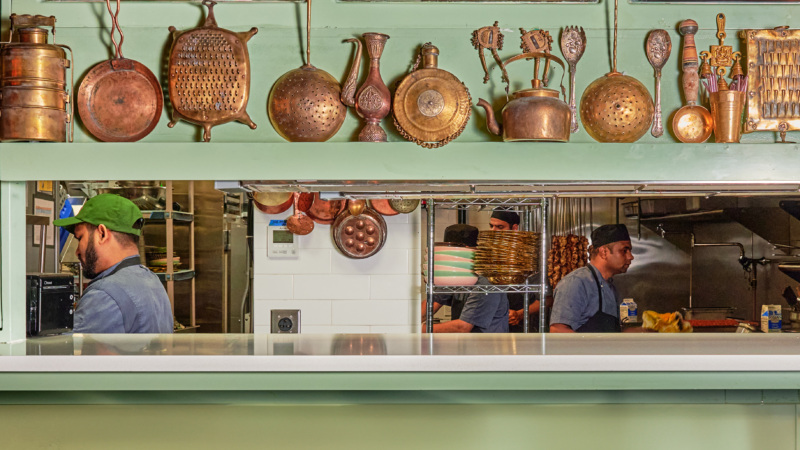
Stephen Satterfield's Corner Table



